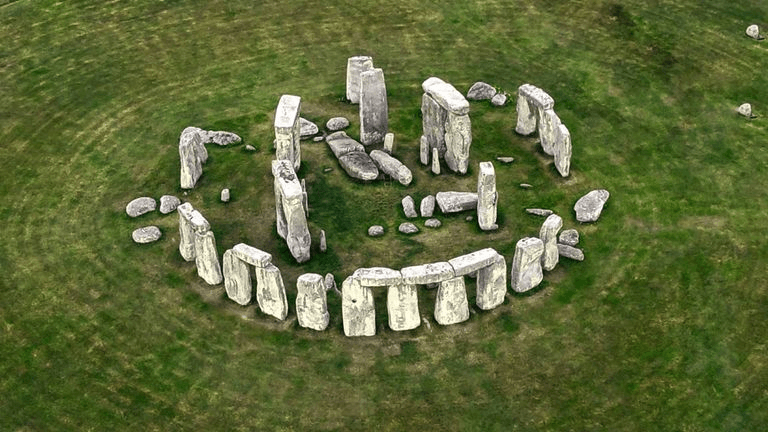
The Stonehenge Mystery: Who Built It — and Why?
A Monument Older Than History
Located on Salisbury Plain in southern England, Stonehenge is a ring of standing stones, each around 13 feet tall, 7 feet wide, and weighing up to 25 tons. Some were dragged from 150 miles away in Wales — without wheels, roads, or steel.
Construction began around 3000 BCE and continued in phases over a thousand years. That means Stonehenge was already older than the pyramids by the time they were built.
And yet… we still don’t know who actually built it — or why.
Theories About Its Purpose
🔭 1. Ancient Observatory
Stonehenge aligns with the solstices: on the summer solstice, the sun rises exactly behind the Heel Stone, casting light into the center of the circle.
This suggests it may have functioned as a solar calendar, tracking the movement of the sun and moon.
⚱️ 2. Burial Ground or Sacred Site
Excavations have uncovered human remains, some dating as far back as 3000 BCE. This points to a possible ritual or funerary function, maybe a place for elite or royal burials.
🌍 3. Place of Healing
Some archaeologists believe Stonehenge was a prehistoric pilgrimage site, where people came seeking healing. Many remains found near it show signs of injury and disease.
👁️ 4. Symbol of Unity or Power
Constructing Stonehenge would’ve taken massive coordination, suggesting it may have been a unifying project among warring tribes — or a show of power by early rulers.
The Bizarre Part: The Stones Themselves
🪨 The Sarsens
These are the larger stones, up to 25 tons each. They likely came from Marlborough Downs, about 20 miles away.
🧊 The Bluestones
These smaller stones weigh around 4 tons and come from Preseli Hills in Wales — over 150 miles away.
How were they transported? By river? Logs? Ice? Magic?
We still don’t know.
What We Do Know
- Stonehenge was not built all at once, but in phases over 1,000+ years
- It reflects a deep understanding of astronomy, geometry, and engineering
- The builders left no written language, no blueprints, no explanation
- It was abandoned by around 1500 BCE
Unanswered Questions That Still Bother Us
- Why did they build it where they did?
- How did they move 25-ton stones with no wheel?
- Why are so many bodies buried nearby, many from hundreds of miles away?
- Why does the alignment of the stones correspond so precisely with solar events?
The Modern Fascination
“There are more theories about Stonehenge than there are stones in it.” — archaeologist Mike Parker Pearson
Today, Stonehenge is a UNESCO World Heritage Site, drawing over 1.5 million visitors a year. Druids, pagans, skeptics, and scientists all come to feel the ancient weight of it.
It’s a relic not just of a civilization, but of a mindset — one we’ve never truly understood.
Stonehenge Remains… Stone Silent
Thousands of years later, we still don’t know:
- Who built it
- What it was for
- How they did it
And maybe we’re not supposed to.